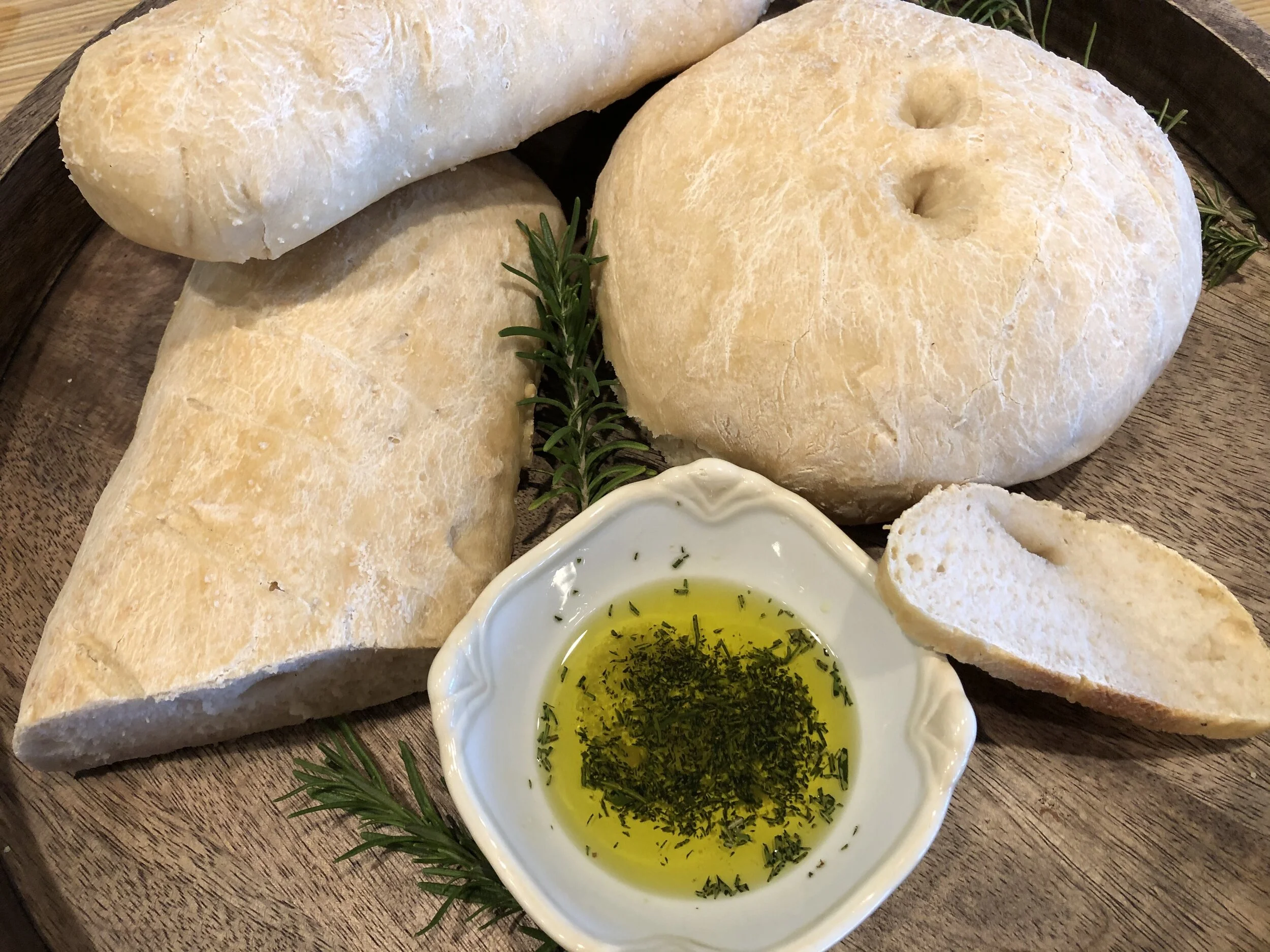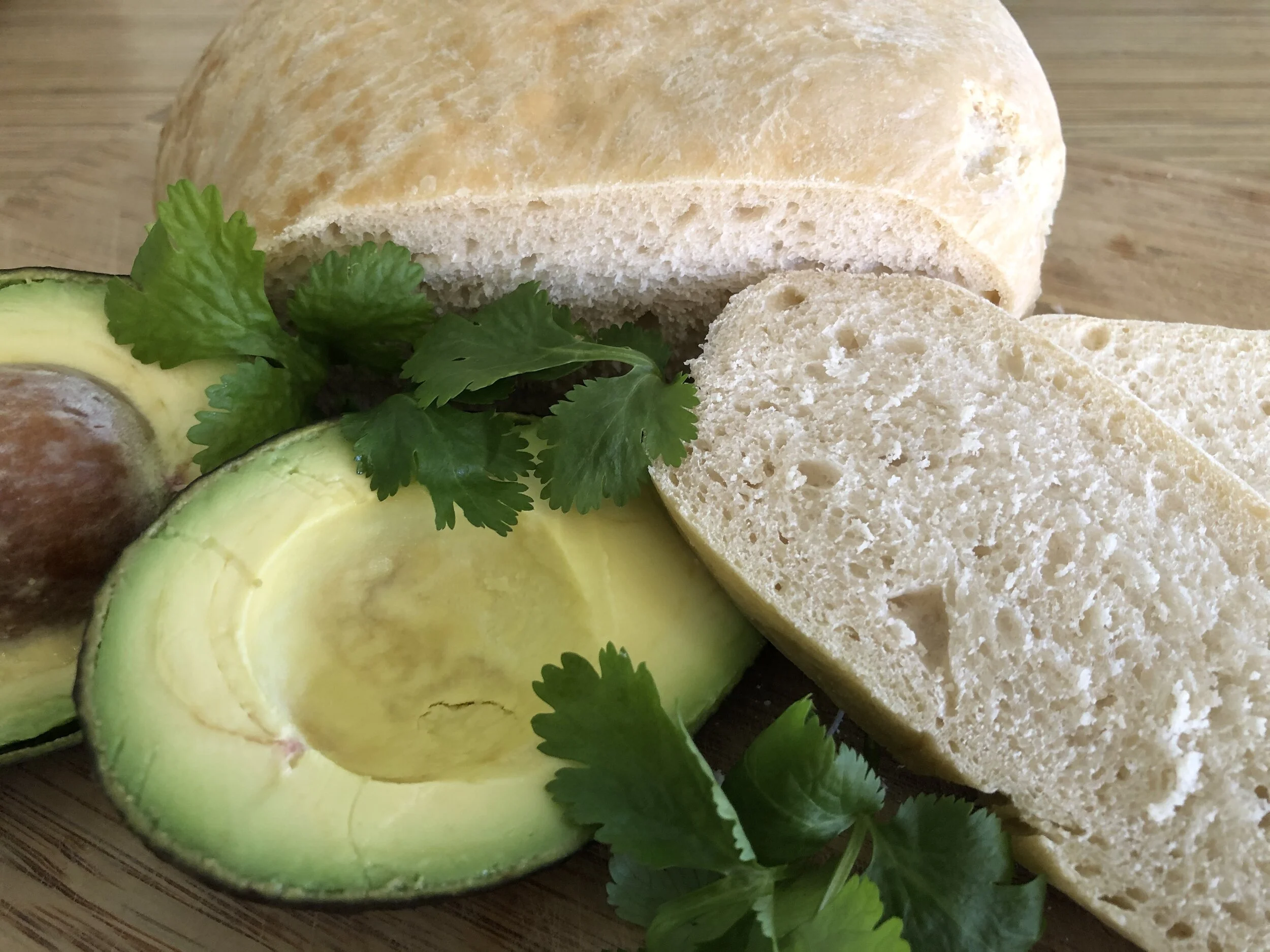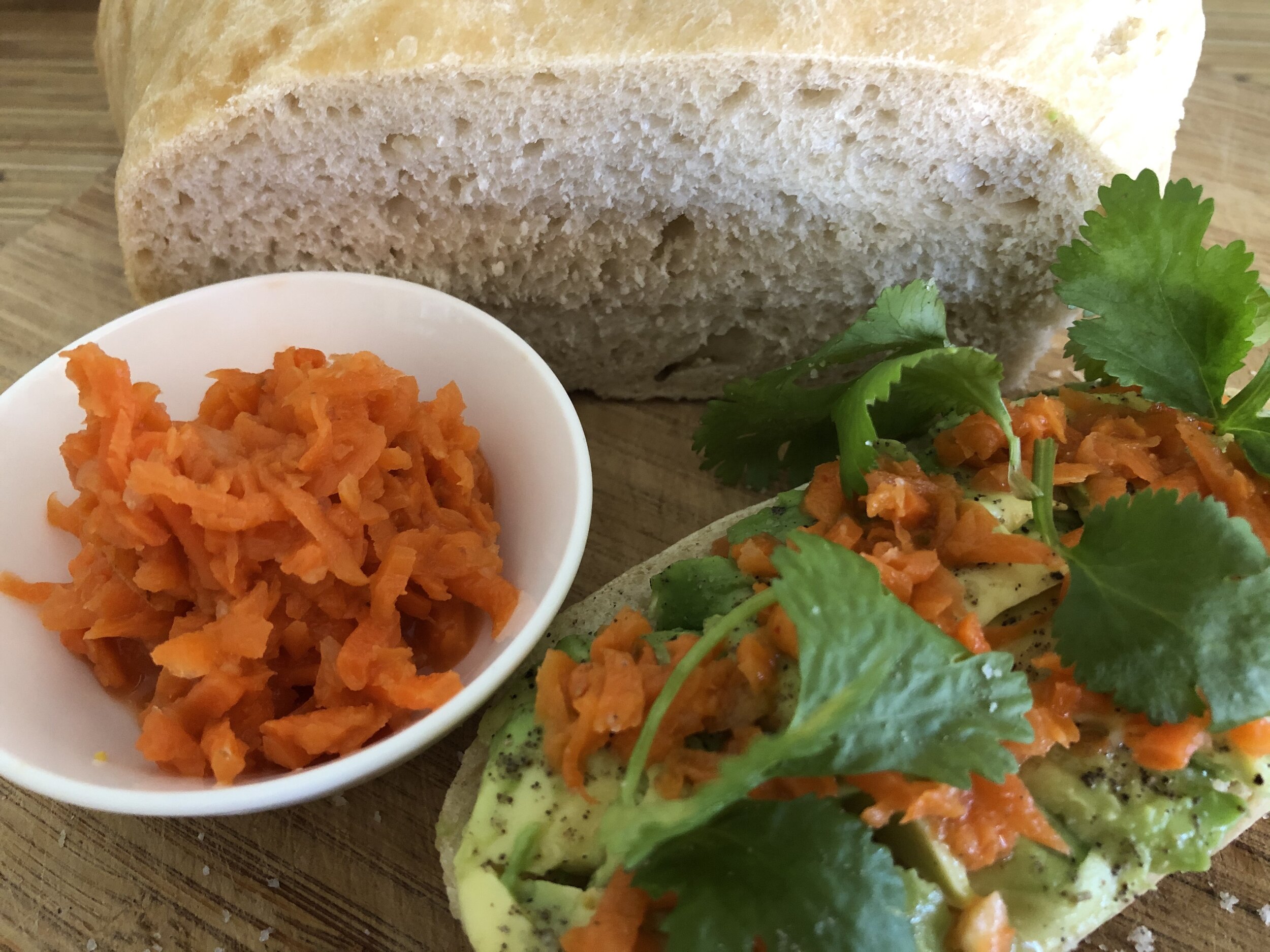Chef Teton’s own sourdough bread and rosemary olive oil.
Still crazy after all these years. Why oh why did I try to make sourdough bread? It certainly was not simple. For years, well since I became a nutritional foodie, especially in my raw food year, bread was the bad word. When I ask anyone what their biggest problem was with loosing unwanted weight, they usually would reply, “carbs” and bread was at the center of carbs.
Dr. Tomas Cowan, one of my favorite authors and doctors, who subscribes to a plant based diet that includes organic grass fed meats, real milk, butter and yes, sourdough bread. Fermented foods of all kinds are included in Nourishing Traditions, a cook book and dietary way of life. Now, don’t get me wrong and think that I am a milk guzzling, meat eating gal here, but I think there is merit to almost all the diets I see out there that are singing the same song, with slightly different lyrics. They all sing the praises of organic foods, from the Earth, mostly plants, and animal products from sustainably raised organic grass fed pastures. That being said, not many of these diets are talking about BREAD!
Did you know that many people who are gluten intolerant can enjoy naturally leavened sourdough bread? This is not wide spread, but the point I am making is that all breads are not created equal. Sourdough is lower in carbs, higher in protein and taste amazing. I can enjoy it without a heavy feeling while digesting it just fine. And, frankly, I don’t think my body could live without a piece a day. Life would just be too hard. I mean, really, what ever happened to the sandwich? I was raised on sandwiches. When I was a student and for many years lunch was carried in a brown paper bag that included a sandwich, an apple or orange and a couple of cookies - or something like that. I did just fine. So, did all my friends.
The problem now a days is the way wheat is grown (forced and sprayed with glyphosate before harvesting - not to mention while it is grown). It is mass produced in dead soil, is sticky and hard to digest, obviously.
My client, Connie, who you can read about HERE, has some pretty horrific digestive issues (and she is only 55). She had to take out gluten and all the products that contain gluten. But, she seems to tolerate sourdough just fine. When she eats bread or pizza or any other commercial bread when she is out, she has a reaction. Organic sourdough is not only digestible but she likes as well. This is a key point because otherwise she would bounce off her diet instantly if she was not satisfied with healthy carbs in some way. Connie is doing her best to eat only whole foods; she makes a lot of mistakes, and needs something that can satisfy her when she is in a pinch - which we all seem to be now a days.
If you are struggling with your diet in any way, or the inner game you play with yourself with regards to your diet, you might relate or gain benefit from reading The Story of Connie. I wrote it because I felt people might relate to her struggle. Connie did not know anything about diet and the quality of food when she came to me. She was shocked with what she discovered, but still, even when she knows better she does not do better. If you are struggling in any way you may relate to her story.
There is only one local brand of sourdough that I can find on Maui, and one commercial brand made from spelt flour that seems to do my body good. For years I have longed to learn to make my own bread, and finally had a chance to attend a class. I decided to dive in and learn how to make sourdough. This super bowl Sunday I surprised my neighbors with my first homemade loaves of sourdough. I can’t even begin to say how proud I was because it was a huge job that I charted through un familiar territory to say the least. When I was done, I said I would never do it again. OMG, it seemed like so much work. But, when I had lunch today, I was hooked. It was fantastic. Now, I have learned to incorporate the steps into my time in the kitchen. Like so many things that we try that are new, soon they become easy and find a way of fitting into our lifestyle.
Some sourdough facts:
No sugars or oils are used for baking (particularly for home made), the ingredients are just water and flour, with the secret ingredient being live yeast cultures, which is what gives it a tangy flavor and texture.
Not only does live instead of dried yeast change the flavor, but it also means that the bread stays fresh longer than factory baked bread. It also does not require any extra preservatives.
Sourdough bread is fermented by using lactobacillus cultures (a probiotic that benefits the gut). The cultures are not alive in the bread after it is baked, but lactic acid is created and that does the body good. Lactic acid helps minimize the levels of phytic acid in bread, which helps other nutrients become more readily available, digestible and absorbable. Like many whole foods, the benefit is in the synergy created.
Sourdough bread is also satisfying and fulfilling. It is often good without having to be toasted or heated, so it can travel well. Enjoying a good piece of bread with a salad or other meal helps to keep one satisfied, alleviating the temptation to reach for something less than excellent.
Making your own creates enormous pride (maybe that is just me), and it creates a much lighter foot print on the planet - no plastic wrap.
Lastly, it is so much more economical!
Sourdough is still bread though, yet could be an option you might like to consider, especially if you want to bring the ever loving sandwich back into your life. If you want to make your own, then all the better!
This sourdough toast with avocado has the added feature of cultured (fermented) carrots. Think sauerkraut. Instead of cabbage these are made with carrots. Have a jar of these around and make everything more tasty and digestible. YUM
What is your favorite choice of bread?


